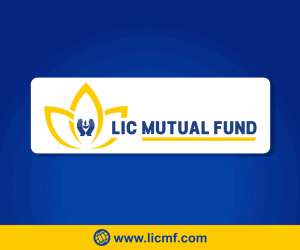Tax Planning at different stages of life: Part 1

Tax planning is an important financial objective of any person. Tax planning starts when a person starts working and continues almost through-out one’s life, even after retirement. While there are various aspects of tax planning, in today’s blog we will focus only on tax saving. I have observed that, people often fail to look at tax planning objectively and start making investments related to tax saving in a very mechanical way. Tax planning is an integral part of our financial planning process and thoughtful planning goes a long way in helping us achieve our financial goals.
Tax payers can save taxes by claiming deductions from their taxable income under Section 80C of the Income Tax Act by investing in certain instruments. These options can broadly be classified under three categories:-
- Fixed Income investments like Employee Provident Fund (EPF), Public Provident Fund (PPF), National Savings Certificates (NSC), 5 year tax saving bank fixed deposit, 5 year Post Office deposit, Senior Citizen Saving Scheme and Infrastructure Bonds
- Market Linked investments like Equity Linked Savings Scheme (ELSS), Life Insurance Premiums, Unit Linked Insurance Plans (ULIP), Pension Fund and National Pension Scheme
- Expenses like Tuition Fees, Home Loan Principal Payment and Stamp Duty & Registration charges (for home)
The Section 80C limit of eligible deductions from taxable income has been raised from Rs 1 lac to Rs 1.5 lacs in the recent Budget. This gives a further tax saving of Rs 5,000 to Rs 15,000 to tax payers, depending on their tax brackets, if they are able to invest additional Rs 50,000 towards the increased limit of Rs 1.5 lacs under Section 80C.
Apart from Section 80C, there are other sections of the Income Tax Act that allows tax payers to claim further deductions from their taxable income beyond the 80C limit. In our article, Non Investment considerations in Tax Planning, we have discussed various eligible deductions under other sections of the Income Tax Act like (Section 80D, 80DD, 80DDB, 80U, 80E, 80G, 80GG and 24). Tax payers should familiarize themselves with the eligible deductions allowed under the different sections of the Income Tax Act, to maximize their tax savings. As discussed earlier, tax planning is an integral part of our financial planning process. Tax saving investments should be aligned with our financial planning objectives. In other words, investors should ensure that tax-saving investments are in sync with our financial goals, financial situation, risk profile and optimum asset allocation guidance (please read our article, 6 Key steps of Financial Planning process). Our financial situation and goals are not static and change over time. Accordingly, tax planning should not be a mechanical exercise to meet the Section 80C requirement, but should be tuned according to the needs of the different stages of life, as we will discuss in this blog. Please note that the tax planning strategies discussed in this two part article are general guidelines. Your tax planning strategies will depend on your own financial situation and specific financial goals.
Tax planning in the age group of 20 - 30
The twenties are the starting points of our careers. Since we are young, our risk tolerance is high. Investments made during this period with a long horizon will benefit from the power of compounding over the long term. Investments should be the major focus of tax planning in the age group of20 – 30. Here are some tax-planning ideas for this age-group:-
- Your contribution to the employee provident fund will go towards the eligible 80C investment. Your employer deducts your contribution to your PF account from your monthly pay cheque (12% of your basic salary). The annual interest earned on your PF savings is 8.5%.
- You should start planning for your long term financial goals, like retirement planning. Since your risk tolerance at this age is high, your asset allocation should be weighted towards equities. Equity Linked Savings Schemes (ELSS) is an excellent investment option for this age group. Equity Linked Saving Schemes (ELSS) is one of the most popular investments allowed under Section 80C, since you can avail triple benefits of tax savings under Section 80C, capital appreciation and tax free returns. An ELSS is a diversified equity scheme with a lock in period of three years from the date of the investment. You should consider investing in ELSS through a Systematic Investment Plan. Compared to other tax saving instruments under Section 80C like PPF, NSC, and Tax saving Bank FDs ELSS has the potential of offering much higher returns over the long term.
- An important part of financial planning is to ensure that you have adequate life insurance cover. While life insurance premium up to the 80C limit is eligible for tax deduction, tax saving should never be the primary consideration in getting life insurance. Tax saving or not, one should always get adequate life insurance. The only way 80C status benefits life insurance is that, it reduces the cost of insurance. Investors should separate insurance and investment objectives, and therefore should avoid savings cum insurance plans. Term plans provide life insurance cover at the lowest cost. The cost saving in premium of a term plan compared to an insurance cum saving plan (like an endowment plan) can be re-invested in tax saving investments that yield higher returns like ELSS or even Public Provident Fund (please read our article, Taking term plan can be a smart Insurance choice)
- You should ensure that you have adequate health insurance or Mediclaim cover. Your employer may provide you health insurance under the group health insurance plan and so you may not need to buy additional Mediclaim. But you should make sure that the health insurance cover in your employer’s group health insurance plan is adequate for your needs. You should check what kind of benefits your employer’s group insurance policy offers. Check what is the total amount and nature of illnesses that your company’s group insurance covers. If you have a family, does the policy cover your spouse, children, parents and other dependents? If your company’s group insurance is not adequate for your needs, then you should buy additional Mediclaim to protect your family’s healthcare needs. Mediclaim premium for self, spouse, dependent children and parents are eligible for deduction under Section 80D. The maximum allowable deduction is Rs 15,000 for self, spouse and dependent children. If an individual pays for Mediclaim premium of parents who are senior citizens, then he or she can claim an “additional” maximum deduction of Rs 20,000.
- If you had taken an educational loan for your higher education and are now repaying the loan, you can claim deduction on the interest paid on the loan under Section 80E of the Income Tax Act. The entire amount of interest paid in the year is eligible for deduction. There is no upper limit. However, there is no tax benefit for principal repayment. You should note that this benefit also extends to loans for higher education of your spouse, if you are paying the interest on her loan as well.
- You can also invest in Public Provident Fund (PPF). PPF is one the most popular choices under Section 80C of the Income Tax Act, since it offers good interest rates, ensures capital safety and tax free returns. The current interest rate of PPF is 8.7%. Though rates will vary from year to year, the yield has been pegged at 25 basis points above the 10 year Government Bond yield. However, investors should bear in mind their asset allocation target. At this stage of life (please read our article, Asset Allocation strategies for different age groups) investors should prioritize ELSS investments over PPF for tax saving, unless they have sufficient equity investments in their overall investment portfolio, over and above tax saving investments.
Tax planning in the age group of 30 – 40
The thirties is an important stage of life. This is the stage of life when we are likely to have a family. Incomes and responsibilities increase in this phase. The risk tolerance of the investor in the thirties is still high. Tax saving investments should be made with a long time horizon. However, during this stage of life you can also benefit from other tax saving options
- As your salary increases, your contribution to the employee provident fund will also increase. Since your EPF contribution automatically goes to your 80C, you will be able to save more taxes.
- If you have children, you can claim a deduction towards their school tuition fees. Please note that, fees paid for private tuition or coaching classes are not eligible for 80C deduction.
- You should continue with your life insurance policy. Evaluate if the sum assured of your policy is sufficient for the needs of your dependents. You need to consider several factors in deciding how much insurance cover is adequate. These factors are:-
- Repayment of your entire outstanding debt (e.g. home loan, car loan etc.) in the event of an unfortunate death
- After debt repayment, the insurance cover should have surplus funds to generate enough monthly income to cover all the living expenses of your dependents, factoring in inflation
- After debt repayment and generating monthly income, the insurance cover should also be adequate to meet the future needs of your dependents, like your children’s higher education, marriage etc.
- Most Indian homeowners make their first property purchase in their early thirties. You can claim a home loan principal payment up to the maximum 80C limit (Rs 1.5 lacs in the new Budget). You can claim the benefit irrespective of whether you occupy the property or not. 80C deduction can be claimed on home loan principal payment, only after you get possession of you property from the real estate developer.
- You can also claim deduction for interest paid on home loan for a self occupied property under Section 24 of the Income Tax Act. In the previous tax regime, you could claim a deduction of up to Rs 1.5 lacs per annum on account of interest paid on home loan for a self occupied property was. The new Finance Minister has also raised the limit of deduction for interest paid on housing loan under Section 24 of the Income Tax Act by Rs 50,000 to Rs 2 lacs per annum. Please note that if you have rented out the property, then there is no limit and the entire interest paid can be deducted from you rental income to calculate the net income from your House Property for Income Tax purpose.
- You should also re-evaluate your health insurance cover since you may have more dependents now. The group health insurance plans of many companies provide a cover of Rs 2 lacs. But it may not be enough. If you are living in a metro city, a major illness in your family can cost you Rs 4 – 5 lacs. If you have a family it makes more sense to buy a family floater plan. In this type of plans, the entire family is covered for the amount they share and the benefit is that, per person premium is lower. As discussed earlier, you can avail deduction of Rs 15,000 (Rs 20,000 if you have dependent parents) for Mediclaim premium under Section 80D.
- After claiming deductions for EPF, children’s tuition fees, insurance premium and home loan principal payment, if you can still make 80C investment, then you should plan your investment according to your risk tolerance level and your optimum asset allocation strategy. Since your risk tolerance level is likely to be high your tax saving investments should be weighted to equities. So continue to invest in ELSS through the SIP route.
- It is also advisable that you open a PPF account at this stage, unless you have one already. You should start making PPF deposits, even if you have exhausted your 80C limits. As discussed earlier, PPF offers, probably the highest risk free tax free returns in the long terms and as such is an excellent investment option
For more details on determining the amount of life insurance cover, please refer to our article, How much life insurance is adequate). If you bought a life insurance plan ten years ago based on your income back then, the sum assured will not be enough to meet your family’s current lifestyle and needs, in the unfortunate event of your untimely death. You should buy additional term cover, if the sum assured of your current policy is not sufficient for your needs. If you are buying Unit Linked Insurance Plans (ULIPs), you should clearly understand the various charges in the policy. Suffice to say, ULIPs will give much lower returns in the short term compared to mutual funds, due to premium allocation, policy administration and other charges. You should not buy ULIPs just to maximize tax savings. If you are not clear about how ULIP charges will affect your investment returns, you should avoid ULIPs.
Conclusion
In this article, we have discussed some tax planning ideas for people in the age group of 20 – 30 years and 30 – 40 years. Please remember that tax planning is not the end all of financial planning. Other financial planning objectives like retirement planning, children’s education planning, debt planning are just as important. Therefore tax saving investments should not be the only investment you make towards long term financial objectives. In our next article, we will discuss tax planning ideas for people in the age group of 40 – 50 years, 50 – 60 years and beyond 60 years.
Queries
-
What is the benefit of mutual fund STP
Aug 29, 2019
-
How much to invest to meet target amount of Rs 2 Crores
Aug 26, 2019
-
Can I achieve my financial goals with my current mutual fund investments
Aug 24, 2019
-
Can you tell me return of various indices
Aug 19, 2019
-
What would be the post tax return on different investments
Aug 18, 2019
-
Which Principal Mutual Fund scheme will be suitable for my retirement corpus
Aug 16, 2019
-
What is the minimum holding period for availing NCD interest
Aug 4, 2019
Top Performing Mutual Funds
Recommended Reading
Fund News
-
Axis Mutual Fund joins ONDC Network to Expand Access to Mutual Fund Investments
Apr 18, 2025 by Axis Mutual Fund
-
Nippon India Mutual Fund launches Nippon India Nifty 500 Quality 50 Index Fund
Apr 18, 2025 by Advisorkhoj Team
-
Nippon India Mutual Fund launches Nippon India Nifty 500 Low Volatility 50 Index Fund
Apr 18, 2025 by Advisorkhoj Team
-
RBI Monetary Policy: RBI changes policy stance and lowers rate
Apr 9, 2025 by Axis Mutual Fund
-
Kotak Mahindra Mutual Fund launches Kotak Nifty Top 10 Equal Weight Index Fund
Apr 7, 2025 by Advisorkhoj Team













